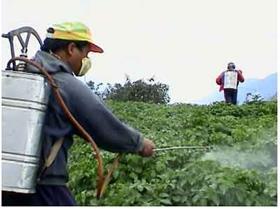
The organic industry has been left reeling after almost half of the pesticides previously allowed for use by organic farmers under the EU’s Organic Regulation have failed their safety evaluation under the EU’s review under Directive 91/414/EEC.
This presents a huge challenge both to organic farmers, who have few means of tackling pests, and to the crop protection industry that offers pest management solutions.
Friedhelm Schmider, director general of the European Crop Protection Association, said there was concern “about sustaining Europe’s ability to maintain a sufficient and affordable food supply if too many pest management solutions are lost too quickly”.
Mr Schmider warned that crop production losses, price increases and pest resistance were possible consequences. “Great care and due diligence will be required in the implementation of this legislation if European agriculture is to reliably produce the food required to maintain our quality of life,” he added.
The EU has, however, authorised a number of active substances widely used in organic farming, including copper hydroxide, copper oxide, copper oxychloride, copper sulphate and Bordeaux mixture (copper sulphate and calcium hydroxide), which are utilised as bactericides and fungicides.
“The approval of these compounds provides some important tools for European farmers in combating pests and, in particular, for the growers of products marketed as organic,” said Mr Schmider.



